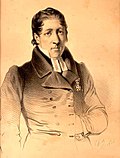You can help expand this article with text translated from the corresponding article in Finnish. (October 2022)Click [show] for important translation instructions.
|
Suomen Rauhanyhdistysten Keskusyhdistys | |
| Abbreviation | SRK |
|---|---|
| Formation | 1906 |
| Type | NGO |
| Purpose | Christian revival movement |
| Headquarters | Kiviharjunlenkki 7, 90220 Oulu, |
Secretary General | Arto Tölli |
Chairperson | Valde Palola |
Publication | Päivämies |
| Part of a series on |
| Laestadianism |
|---|
 |
The Central Association of the Finnish Associations of Peace (Finnish : Suomen Rauhanyhdistysten Keskusyhdistys ry, SRK) is a Conservative Laestadian organization in Finland. [1] It is part of Conservative Laestadianism and its sister organization in North America is Laestadian Lutheran Church. SRK has 179 Associations of Peace in Finland and eight in Russia. It has also sister organizations in Sweden and Estonia. It does mission work in 18 countries.